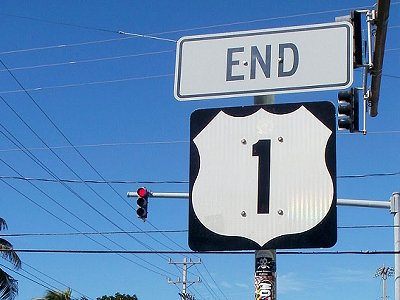
THE PERILS OF ROUTE ONE IN LIFE
New thinking suggests our goals are best pursued indirectly in life. There are echoes of the Gospel in this, but unless we make some distinctions between the two, we may make a mess of our journey.
We may be living longer today, but there are few signs that it has resulted in greater patience in achieving our goals in life. A society driven by the frantic impulse to consume is eager for tomorrow’s blessings to come today. Christian communities have occasionally been prone to the belief that the kingdom of God can be perfectly fashioned in their life in the here and now (known as realised eschatology) and that they do not need to wait for the world to come to obtain it. This usually ends in tears, as bitter disappointment crushes the hope that should be patiently nurtured for the moment of God’s choosing. A secularised version of this is in play today as people try in vain to create the perfect life, only to find that a spirit of restlessness consumes them in the quest and dooms them to perpetual dissatisfaction.
A new kind of priesthood has emerged to support people in this fruitless quest and its wisdom can be accessed in some of the material to be found in the self-help and business sections of the modern bookshop. They purport to show how happiness, wealth, fame and profit can be obtained, offering a step by step code of conduct. The economist John Kay has written a curious and fascinating book entitled Obliquity (Profile Books, 2010) which suggests that those who take a route one approach to their goals are less likely to secure them than those who take a more indirect journey. He challenges the common interpretation of the US Founding Fathers that the ‘pursuit of happiness’ is a prize that we can lay claim to merely by choosing to. Rather, happiness is a by-product of pursuing other goals. Similarly, to become very rich is an object that is best secured by desiring to be good at doing something else. For a firm to be more profitable it is preferable to nurture relationships among stakeholders – including a sense of belonging in the company - rather than pursue short-term shareholder value, because good work is the usual outcome which leads to better customer service.
Kay does not say it, but the odd modern addiction to the pursuit of fame is another cause for concern. Media which uncritically praises the status of celebrities – and the talent shows which increasingly resource this class – encourage the view that fame is a worthy goal in itself which can be obtained quickly. Far better to be famous for having achieved high standards of excellence in your chosen profession than being famous for being famous, which is the desertification of a fertile culture.
Such is obliquity: the pursuit of goals indirectly.
These observations are compelling echoes of the Sermon on the Mount:
Seek first the Kingdom of God and his righteousness and all these things will be added to you (Matthew 6:33)
It is from the primary pursuit of a relationship with God that good things flow.
Several of the beatitudes are perfect examples of obliquity:
Blessed are the poor in spirit, for theirs is the kingdom of heaven.
Blessed are the meek, for they shall inherit the earth.
Blessed are those who hunger and thirst for righteousness, for they will be filled.
In Kay’s thinking, which is being listened to in business circles, there is a strong sense of instrumentalism. The strategy remains the same - to maximise wealth and profit – but the means are altered to achieve them. This may work for them, but it is an inadequate account for Christian commitment. We do not worship God so that we can achieve other goals. This is the risk of the so-called prosperity Gospel, that in saying God blesses with material wealth those who love him, the temptation is to love him to that end. We worship him because he is unfailingly loving and gracious and in Christ we find our sufficiency. The pursuit of this relationship is our earthly calling. It does not guarantee us success, but the assurance of God’s love grants us spiritual resilience. We are also the beneficiaries of many attendant blessings that come with making God and not aspects of the created order our goal.
The inspiring invitation of faith is just this: that if we risk giving our lives away we will find them again, with a new lustre.
Now that’s obliquity.
POPULAR ARTICLES

Obama's Covert Wars
The use of drones is going to change warfare out of all recognition in the next decades.

Through A Glass Starkly
Images of traumatic incidents caught on mobile phone can be put to remarkable effect.

What Are British Values?
Is there a British identity and if so, what has shaped the values and institutions that form it?


